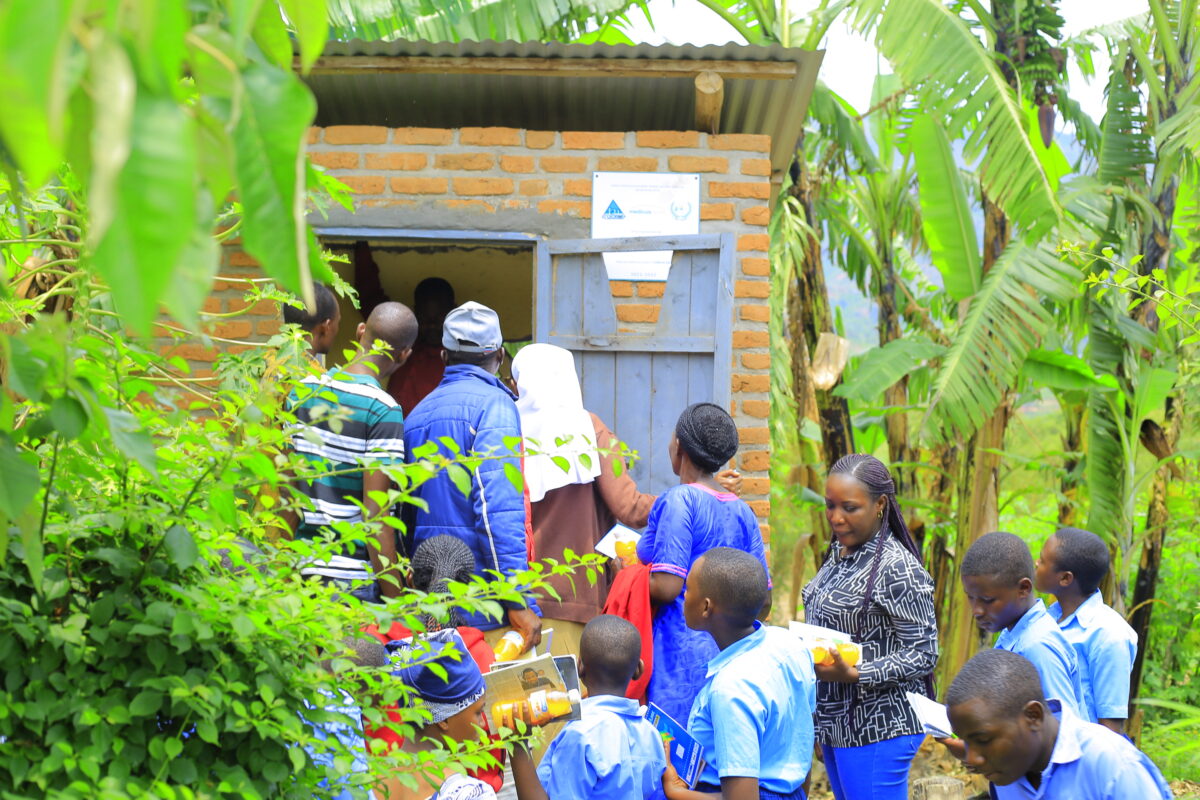On Friday, October 18, students from neighboring schools and non-members of the women cooperatives in Kamonyi District gathered to learn about the cooperatives‘ impactful initiatives related to hygiene and sanitation. The event showcased how the cooperatives have improved the quality of life for its members through innovative infrastructure Hygiene and Sanitation projects.
Some of the schools that visited are G.S. Bubazi at COEPOKA Kayenzi Cooperative,G.S. Masogwe at Karangara Cooperative,G.S. Gihara at Tuzamurane Gihara Cooperative,Ep Gihinga at ABIMBUMBYE Kamonyi Cooperative,G.S. Masaka at ITUZE Kigese Cooperative ,Ep Rwishwima at Karama Cooperative,and G.S. Kabasare at ABATICUMUGAMBI Kabuga.
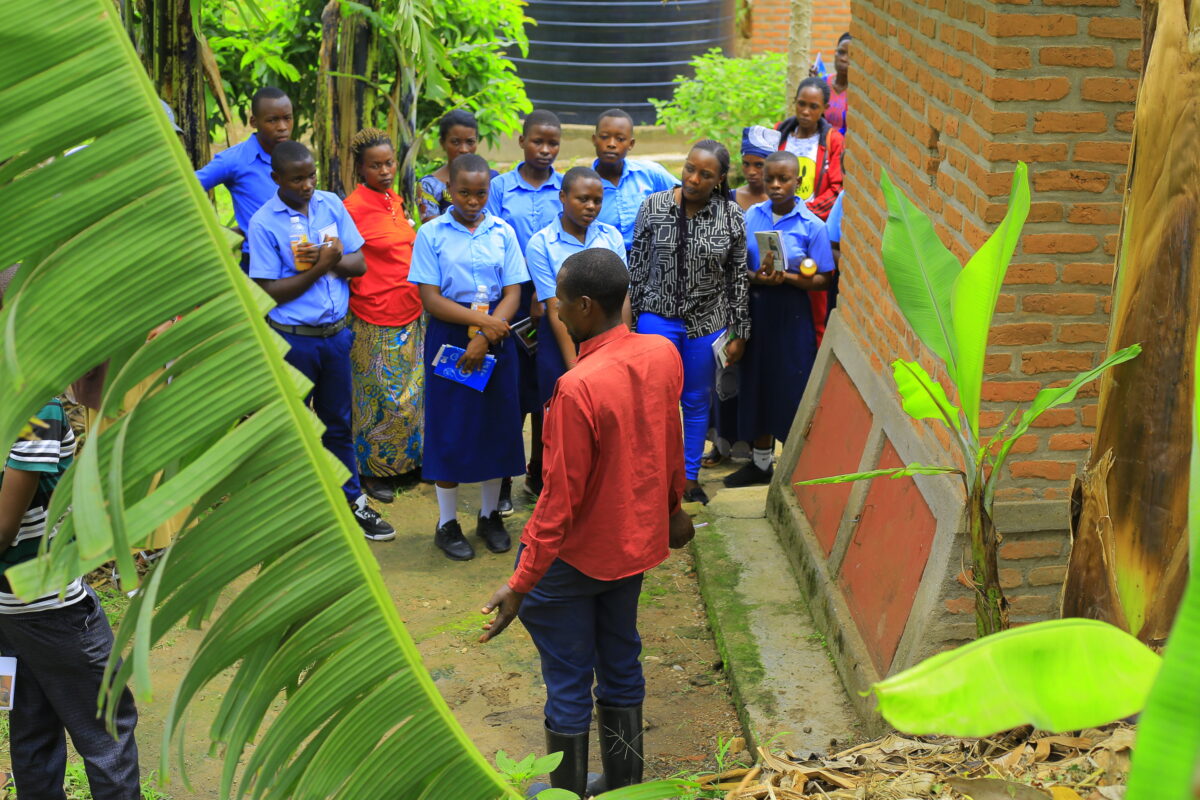
Students learning how an Ecosan toilet works at Kabuga cooperative
Key among the infrastructures are the Ecosan toilet, the girls’ room, and a rainwater harvesting tank—facilities that have significantly contributed to both the health and productivity of cooperatives members. Members shared personal testimonies about the transformative effects of these facilities.
The Ecosan toilet has not only helped them maintain better hygiene standards but also provided much-needed fertilizer for their farming and livestock activities, which include a greenhouse and cattle rearing.
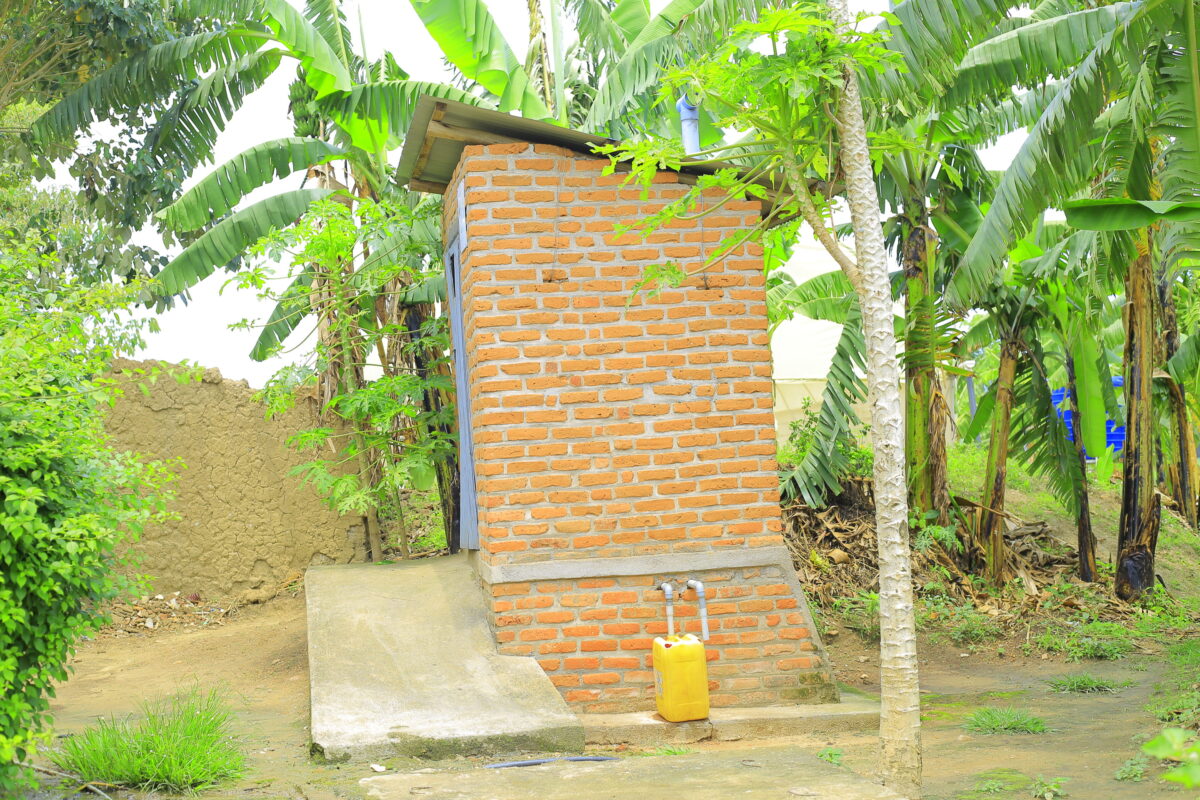
A typical Ecosan Toilet built at each of the 7 women cooperatives sites
One of the most impactful infrastructure highlighted was the girls’ room, which allows female members to manage their menstrual cycles without needing to leave work. This private space enables them to attend to their personal needs with dignity and return to their tasks, ensuring continuous productivity.
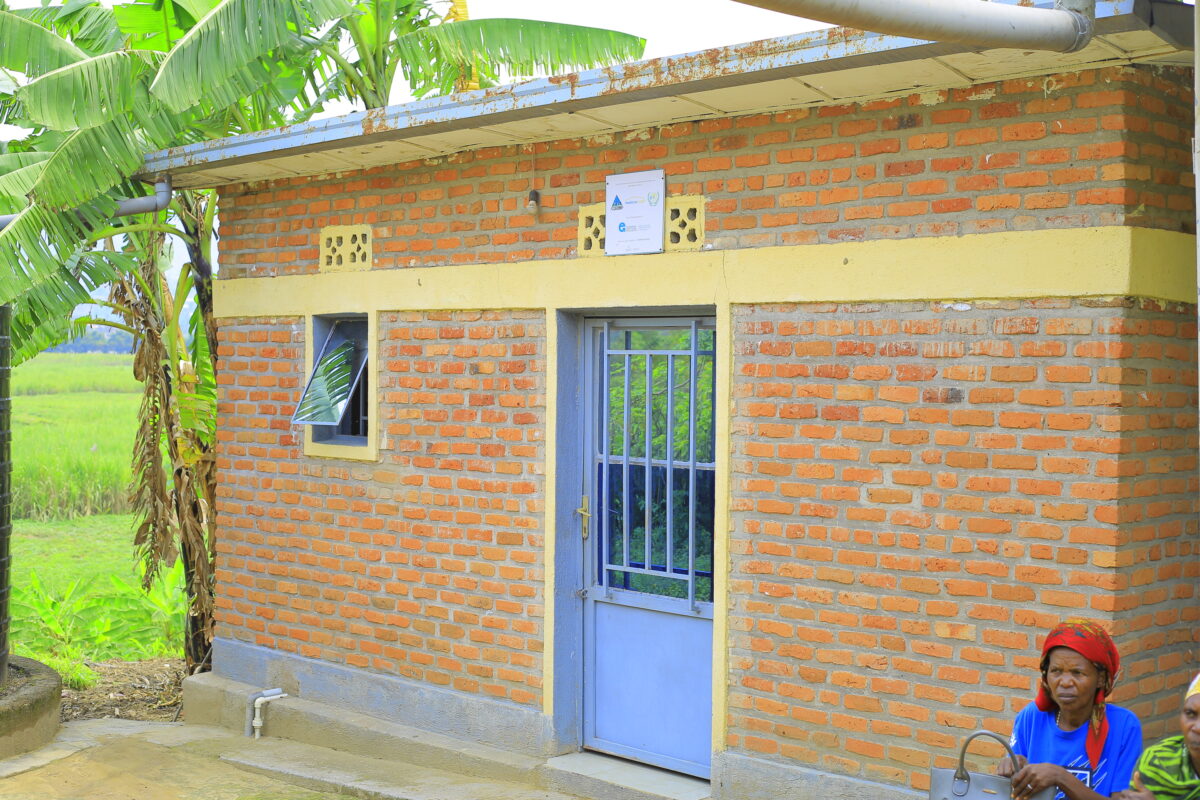
The girl‘s room at Kabuga Cooperative
The rainwater harvesting tank, another vital infrastructure, ensures a steady water supply, even during dry periods. This resource supports the cooperatives‘ daily farming activities, making a substantial difference in times of water scarcity.
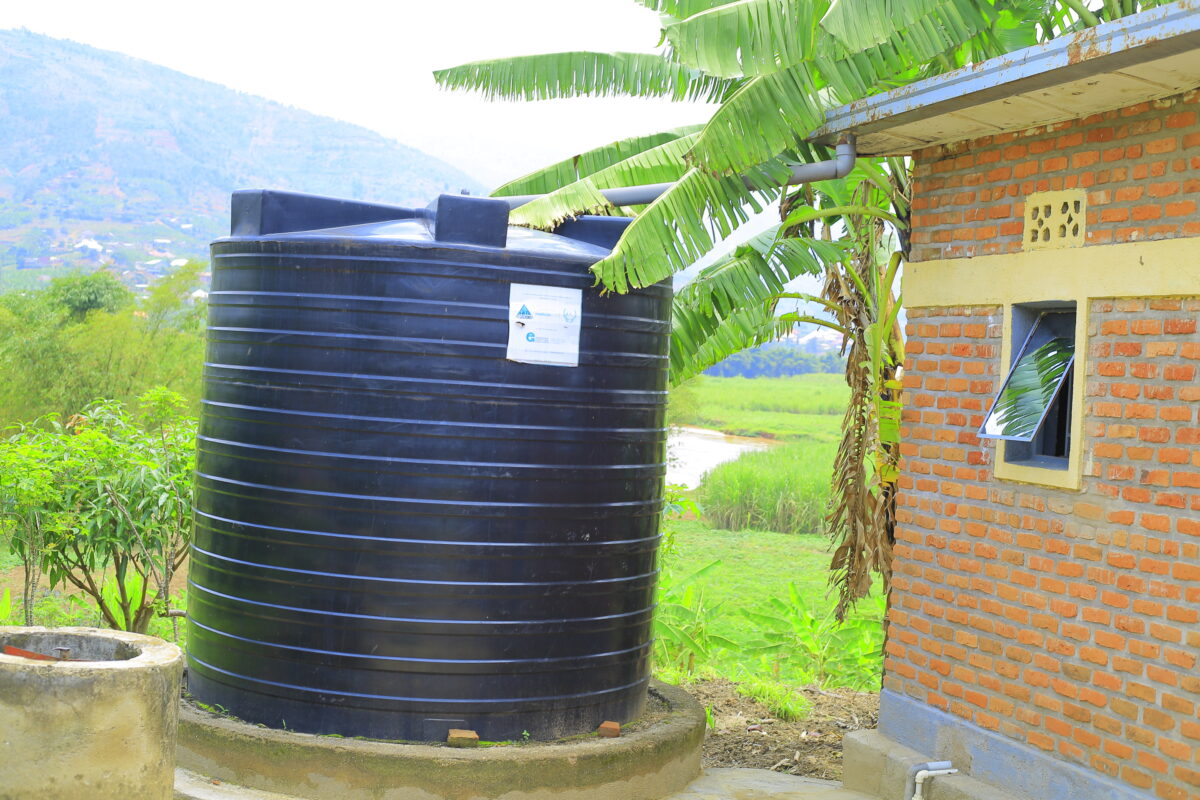
A typical rain water tank at Kabuga cooperative
These life-changing facilities were made possible through a partnership between the ARDE/KUBAHO, and Medicus Mundi. Together, they have not only improved the cooperative members’ living conditions but also created a model for community-driven development that others can follow.


